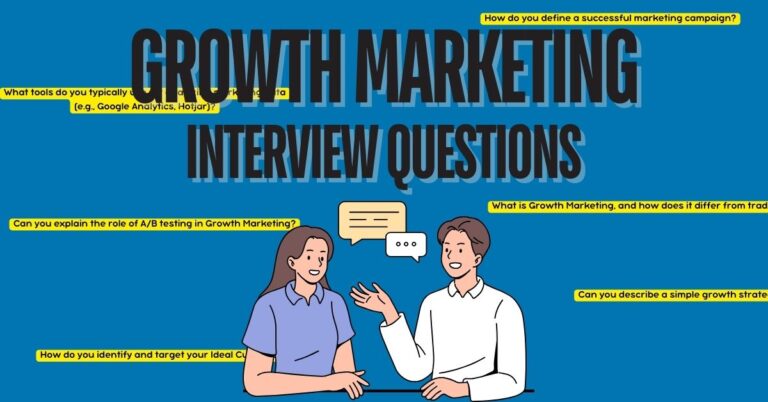9 Best Marketing Skills to Learn in 2024
Over the past few years, the job market has become increasingly saturated. With the rise of AI, unemployment rates have also been steadily climbing.
We all know why you’re here.
You’re looking to future-proof your career by upskilling and learning the best marketing skills available today.
That’s understandable, and you’re in the right place. Here, we’ll show you the skills you should invest in and learn to better position yourself not just for future employers, but also in your current role as a marketer.
Why Learn the Best Marketing Skills?
To make it simple, learning top marketing skills boosts your career options and potential income, keeps you competitive in a rapidly changing industry, and empowers you to significantly impact your company’s success.
By mastering the skills we’re about to show you, you’ll become an invaluable asset to your team. The ability to analyze trends, execute strategic campaigns, and drive measurable results is always in demand.
With that said, here are the best marketing skills that you should look into and learn right now.
What are the Best Marketing Skills to Learn Right Now?
Here are the best marketing skills you should consider learning right now.
1. Conversion Rate Optimization (CRO)
Conversion Rate Optimization (CRO) is a critical aspect of marketing that focuses on increasing the percentage of visitors who complete a desired action on a website or digital platform.
This includes understanding buyer psychology, optimizing ads, websites, social media posts, and landing pages to boost conversions.
Effective CRO can significantly enhance marketing effectiveness by maximizing the revenue generated from existing traffic without increasing ad spend.
For instance, if CRO efforts result in a fourfold increase in conversions, the revenue from any marketing channel can also quadruple.
How to Start
- MECLABS Free Course: MECLABS offers a free course that provides a solid foundation in CRO, including buyer psychology, landing page design, and funnel building. This course is great for beginners looking to understand the basics of CRO.
- CXL Institute: CXL offers a comprehensive CRO certification training program, known as the Conversion Optimization Minidegree. This program covers everything from A/B testing to web analytics and user experience (UX) design. It is designed for those looking to become top-tier conversion optimizers.
- LinkedIn Learning: The CRO course by Jim Huffman on LinkedIn Learning is designed to teach you how to set CRO goals, conduct research, prioritize testing opportunities, and optimize experiments. It is a short course that provides a certificate upon completion.
2. Data Analytics
Data analytics involves the systematic examination of data to uncover insights that drive decision-making and strategy in business. In marketing, data analytics is crucial for measuring the success of campaigns, identifying growth opportunities, and proving the value of marketing efforts.
Mastering data analytics means being proficient with tools such as Google Analytics, Tableau, and Excel to collect and interpret data. Additionally, knowing SQL can enhance your ability to perform data queries independently. Effective communication of data insights is essential; marketers must translate complex data into actionable strategies and clear, understandable reports.
This skill set not only supports data-driven decision-making but also enhances overall marketing efficiency and effectiveness.
How to Start
- Google Analytics Academy: Google Analytics Academy offers free courses that cover both the legacy version of Google Analytics and the new GA4. These courses are designed to help you understand the fundamentals and advanced concepts of web analytics. Upon completing the course, you can earn a certification that validates your skills and knowledge in Google Analytics.
- Coursera: Coursera provides a wide range of data analytics courses, including topics such as Excel, data visualization, and business analytics. These courses are offered by top universities and institutions, ensuring high-quality content.
- Udemy: Udemy offers extensive courses on data analytics, covering various tools and techniques. For instance, “Data Analysis with Python” and “Data Science Career Paths” are popular courses that include practical projects to help you apply what you learn.
3. Pay-Per-Click (PPC)
Pay-Per-Click (PPC) advertising is an essential skill in digital marketing, focusing on driving traffic and generating leads through paid advertisements.
PPC is valued for its ability to deliver immediate and measurable results, making it easier to demonstrate your impact. It involves managing ad campaigns on platforms like Google Ads, Facebook, Instagram, LinkedIn, and more. Key aspects include keyword research, creating compelling ad copy, managing bids, and analyzing performance metrics.
Mastering PPC helps you develop broader marketing skills and gain experience handling significant advertising budgets effectively.
How to Start
- Google Ads Certification: Google offers a free certification course that covers all aspects of Google Ads, including search, display, and YouTube advertising. This course is an excellent starting point for anyone looking to understand the fundamentals and advanced strategies of PPC.
- YouTube Tutorials: YouTube hosts numerous tutorials on PPC and paid ads. These tutorials can help you learn practical tips and tricks, often shared by experienced marketers. Additionally, you can find walkthroughs on setting up and optimizing campaigns on various ad platforms.
- Meta Blueprint: Meta offers a series of free courses under Facebook Blueprint, which teaches you how to run effective ads on Facebook and Instagram. This is essential for marketers who want to leverage social media platforms for their PPC campaigns.
4. Selling
Selling is a vital skill in marketing that can greatly impact your career success. It involves more than just promoting products; it’s about understanding and meeting the needs of your customers or clients.
Effective selling requires discipline, a deep knowledge of your product and market, and the ability to communicate value clearly. Successful salespeople follow a process, continuously improve their skills, and understand their customers deeply.
Mastering selling helps in direct sales and in advocating for your ideas, securing project approvals, and advancing in your organization.
How to Start
- Books on Sales Techniques: Reading sales books can provide valuable insights and strategies. Notable titles include “To Sell is Human” by Daniel Pink, “The Psychology of Selling” by Brian Tracy, and “Spin Selling” by Neil Rackham. These books offer practical advice and proven techniques to enhance your selling skills.
- YouTube Tutorials and Lectures: YouTube is a great resource for free sales training. Channels like Brian Tracy’s, Grant Cardone’s, and Sales Insights Lab offer videos on various sales topics, from cold calling to closing deals and understanding customer psychology.
- Online Courses: Platforms like Udemy and Coursera offer structured courses on sales. Courses such as “Sales Training: Practical Sales Techniques” on Udemy and “Successful Negotiation: Essential Strategies and Skills” on Coursera provide comprehensive training with practical exercises.
5. People Skills
People skills, or interpersonal skills, are essential in marketing and across all corporate roles. They involve effective communication, leadership, and the ability to manage relationships both within and outside the organization.
Excelling in people skills means being able to communicate your ideas clearly and persuasively, which is crucial for selling ideas to colleagues, clients, and superiors. Skills like public speaking, empathetic listening, and conflict resolution not only help in direct interactions but also in crafting compelling narratives for brands.
Mastering these skills can make you stand out in your career, enabling you to lead teams, manage projects effectively, and maintain client relationships.
How to Start
- Books on Communication and Leadership: Reading books such as “How to Win Friends and Influence People” by Dale Carnegie or “Talk Like TED” by Carmine Gallo can provide insights into effective communication and public speaking techniques.
- Join a Speaking Club: Organizations like Toastmasters International offer a supportive environment to practice public speaking and leadership skills. Joining such clubs can provide practical experience and feedback from peers.
- Practice in Real Settings: The best way to improve your people skills is through real-world practice. Seek opportunities in your job or volunteer positions to lead projects, present ideas, and interact with diverse groups of people.
6. Coding
Coding is a highly valuable skill in marketing, enhancing a marketer’s ability to handle complex tasks and innovate.
Marketers with coding skills can automate repetitive tasks, tailor websites based on analytics, and work seamlessly with technical teams. Coding enables detailed data analysis, the use of machine learning to predict user behaviors, and the development of sophisticated digital marketing strategies.
As technology becomes more integrated with marketing, coding skills set professionals apart, making them highly sought after in the industry.
How to Start
- Codecademy: Codecademy provides interactive courses in HTML, CSS, JavaScript, Python, and more, making it a great starting point for beginners to learn coding through structured lessons.
- FreeCodeCamp: FreeCodeCamp offers extensive, project-based learning in web development and data analysis, allowing learners to earn certifications while building practical skills.
- The Odin Project: The Odin Project offers a free curriculum that covers full-stack web development. It’s ideal for learners who prefer a hands-on approach to develop real-world coding skills.
7. Copywriting
Copywriting is a fundamental skill in marketing, essential for crafting persuasive messages that prompt action.
Effective copywriting combines the art of storytelling with strategic marketing to communicate the value of a product or service succinctly and compellingly. It’s the driving force behind successful advertising campaigns, converting readers into customers through well-crafted sales copy.
The distinction between general copywriting and direct response copywriting is crucial; while the former may focus on content creation like blogs, the latter directly solicits a consumer response, much like a commissioned salesperson.
How to Start
- Copyblogger: Copyblogger offers a wealth of resources tailored to aspiring copywriters, including articles, tutorials, and seminars that cover everything from basic copywriting skills to advanced content marketing strategies.
- Practice and Feedback: Practice writing copy regularly and seek feedback from more experienced copywriters. Join forums or local writing groups where you can share your work and receive constructive criticism.
- Study Successful Copy: Analyze successful advertising campaigns and familiarize yourself with the types of copy that have led to high conversions. Understanding what works and why it works helps you develop your style and effectiveness.
8. Excel
Excel is an essential tool for marketers, offering powerful capabilities for data analysis, visualization, and reporting. Mastering Excel can significantly enhance your efficiency and ability to extract insights from data.
Excel skills include creating and using spreadsheets, performing complex calculations, generating charts and graphs, and using advanced features like PivotTables and macros.
These skills are crucial for handling large datasets, performing financial analyses, and making data-driven marketing decisions.
How to Start
- Microsoft Learn: Microsoft offers free learning paths and modules that cover everything from basic to advanced Excel skills. These resources are great for both beginners and experienced users looking to sharpen their skills.
- Practice with Templates: Using Excel templates for budgeting, project management, or marketing analytics can help you practice and apply your skills to real-world scenarios. Microsoft offers a variety of free templates that you can modify and use.
- Excel Forums and Communities: Join forums and online communities like the MrExcel Forum or the Reddit Excel Community. These platforms allow you to ask questions, share tips, and learn from experienced Excel users.
9. Psychology
Psychology is a crucial skill in marketing, providing insights into consumer behavior and decision-making processes.
Understanding psychology allows marketers to craft strategies that resonate with target audiences, enhancing engagement and conversion rates. Key areas include consumer psychology, behavioral economics, and the psychological impact of marketing messages.
By leveraging psychological principles, marketers can predict and influence customer actions, tailor content to emotional and cognitive triggers, and build stronger connections between brands and their customers.
How to Start
- Online Courses: Websites like Coursera and Udemy offer courses on consumer psychology, social psychology, and related fields. These courses are taught by university professors and industry experts, providing both theoretical knowledge and practical applications.
- Books on Psychology: Reading foundational books in psychology can provide deeper insights into human behavior and marketing applications. Titles like “Thinking, Fast and Slow” by Daniel Kahneman and “Influence: The Psychology of Persuasion” by Robert Cialdini are highly recommended.
- TED Talks on Psychology: TED Talks offer accessible insights into psychology from leading thinkers in the field. These talks cover a range of topics from behavioral economics to cognitive biases and can be a great way to understand complex psychological concepts.
Additional Tips When Learning the Best Marketing Skills
Alright, you now know the best marketing skills to invest in. But are these all? Not quite. Below are additional tips to keep in mind if you’re planning to upskill!
Understand the Strategic Side
To secure high-paying roles, grasp how marketing fits into the broader business strategy. Learn how different marketing tactics contribute to the company’s overall goals. A strong strategic understanding is crucial for leadership roles like CMO, where you oversee diverse marketing functions.
Be a Generalist Before Specializing
Learn as much as you can about every marketing channel and get hands-on experience. This broad knowledge will make you versatile and adaptable. As you advance, you can specialize in areas that align with your strengths and interests.
Focus on Data-Driven Decisions
Being data-driven means understanding the importance of metrics and analytics in marketing. Use tools like Google Analytics and Google Data Studio to track and analyze your campaigns. Making decisions based on data helps you refine your strategies for better results.
Develop Technical Skills
Technical skills are essential in today’s marketing landscape. Learn SEO, PPC, email marketing automation, and how to use tools like Google Ads, Google Tag Manager, and Meta Ads. Technical proficiency enhances your ability to execute and optimize campaigns effectively.
Embrace Continuous Learning
Marketing is constantly evolving, so keep learning. Engage in regular training, attend webinars, and stay updated with industry trends. This ongoing education will keep your skills sharp and your strategies innovative.
Gain Practical Experience
Put your skills into practice by developing marketing projects from scratch. Build websites, run ad campaigns, create newsletters, and more. Real-world experience is invaluable for refining your skills and understanding how different elements of marketing work together.
Focus on Delivering Results
Set clear objectives for your marketing efforts and use data to guide your decisions. Continuously optimize your strategies to achieve measurable success. Being able to consistently deliver results makes you a valuable asset to any organization.
Conclusion
Here at Juan Remote Work, we ensure you’re fully up to date with the latest tips and advice on upskilling as a marketer.
The skills we’ve mentioned aim to not only expand your current skill set but also open up new opportunities as you broaden your understanding of marketing.
For more content like this, consider browsing through our blog. There, we cover topics such as ‘How to Repurpose Blog Posts Into LinkedIn Posts‘, ‘Content Writer vs YouTube Scriptwriter‘, and more.
We hope we’ve helped you understand better where to pivot in terms of acquiring new skills. If you have any concerns, don’t hesitate to reach out. Take care!
FAQs
How do soft skills complement technical marketing skills?
Soft skills such as communication, teamwork, and adaptability are crucial in complementing technical skills in marketing. They enhance a marketer’s ability to collaborate effectively, manage projects, and adapt to changing market conditions or consumer behaviors. These skills help in negotiating with stakeholders, presenting ideas compellingly, and leading teams to execute complex marketing strategies successfully.
How important is it for marketers to understand consumer psychology?
Understanding consumer psychology is critical for marketers as it influences how they craft messages, design campaigns, and choose media. Knowledge of psychological principles can help predict consumer reactions, tailor messages that resonate on a deeper emotional level, and improve the overall effectiveness of marketing efforts. This understanding can lead to more engaging and persuasive marketing that drives conversions and brand loyalty.
How can marketers keep up with rapidly changing technology and trends?
Marketers can stay updated by continuously learning through online courses, webinars, professional workshops, and industry conferences. Subscribing to leading marketing blogs, following influential marketers on social media, and participating in professional groups or forums also help in staying informed. Regular training and certification in new tools, platforms, and methods are essential to keep skills relevant and competitive.
What is the significance of cross-functional skills in marketing?
Cross-functional skills, such as understanding basic finance, project management, or digital tools, enable marketers to work effectively across different departments. These skills help in aligning marketing strategies with broader business objectives, managing budgets more effectively, and communicating more efficiently with other teams like IT, sales, and finance. This integrated approach leads to more cohesive and successful marketing efforts.
How can marketers leverage social media analytics effectively?
Marketers can leverage social media analytics by using tools like Hootsuite, Buffer, and Sprout Social to track engagement metrics such as likes, shares, comments, and follower growth. Analyzing these metrics helps in understanding audience preferences, optimizing content strategies, and measuring the effectiveness of campaigns. Regularly reviewing and adjusting strategies based on analytics can significantly improve social media performance.





![How to Write a Proposal on Upwork That Works [10 Easy Ways]](https://www.juanremotework.com/wp-content/uploads/2024/07/a-woman-thats-looking-through-her-laptop-768x402.jpg)

